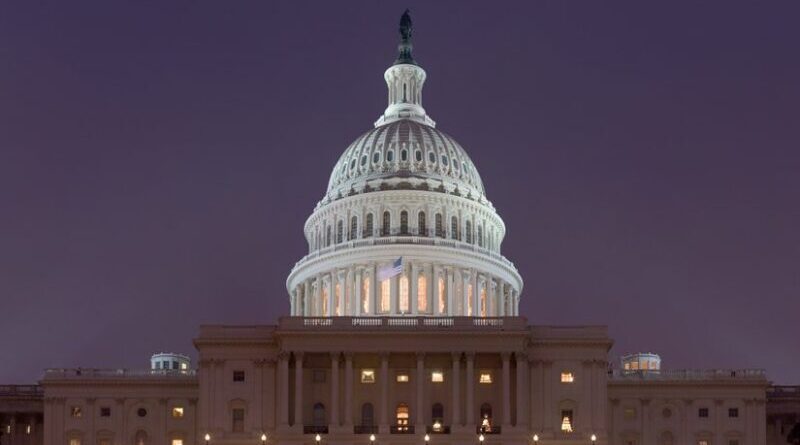Politics Subvert The All-Important Rule Of Law – OpEd
By Ivan Eland
One of the most important issues in the 2012 election is a non-issue because both parties want to ignore it: punishment for Bush-era human rights violations by torture. Nevertheless, in a country where the rule of law (that is, we are all supposed to be equal before the law) should be paramount, it is vital that such uncomfortable episodes be examined and, if necessary, prosecuted. Yet the CIA has been put above the law.
The episode is similar to President Gerald Ford’s holding of former President Richard Nixon above the law with an unconstitutional pardon for his Watergate crimes before Nixon had even been convicted of any of them. Although this protection from prosecution is similar to that of the Justice Department’s protection of CIA torturers, at least President Ford’s pardon was justifiably unpopular with the American people and contributed to his defeat in his 1976 re-election bid. Unfortunately, Obama’s protection of CIA operatives from prosecution for blatantly illegal torture to avoid Republican criticism is not unpopular and will not contribute to Obama’s electoral defeat, even if that occurs.
There were powerful dissenters from the initial Obama administration policy of not prosecuting CIA personnel who followed President George W. Bush’s clearly illegal lawyerly opinions on torture, which were eventually revoked. This opposition within the Obama administration took the form of Attorney General Eric Holder’s laudable, but criticized, investigation of incidents in which CIA torturers exceeded even the Bush administration’s illegal torture guidelines. Holder investigated two prisoner deaths from torture: one in Afghanistan in 2002 and one in Iraq in 2003. Unfortunately, predictably falling victim to election-year politics, both of these cases recently were announced closed without prosecution, thus essentially eliminating the possibility of any meager victories for the rule of law in the prosecution of Bush-era torture.
Yet in announcing the closing of the criminal cases, Holder bizarrely argued that the unnamed CIA officials should not be ethically exonerated. Holder stated, “Based on the fully developed factual record concerning the two deaths, the department has declined prosecution because the admissible evidence [my emphasis] would not be sufficient to obtain and sustain a conviction beyond a reasonable doubt.” He added that the investigation “was not intended to, and does not, resolve broader questions regarding the propriety of the examined conduct.”
I’m sure that this distinction escapes the families and friends of the dead, even though the lack of punishment for the CIA perpetrators of these, and all other, episodes of torture doesn’t. Holder’s vague references to “statutes of limitations and jurisdictional provisions” as reasons for declining prosecution should raise suspicion that electoral politics played a role in that decision.
Part of the problem in most cases of torture—which is clearly illegal under U.S. and international law—is that the executive branch is reluctant to prosecute its own employees for illegal conduct. In fact, the Justice Department, always responsive to whatever administration is in power, originally wrote memos justifying the illegal torture. So in effect, to prosecute most cases of torture, the Justice Department would embarrassingly have to prosecute people for following its own rules. In addition, uncomfortable questions then would be asked about why high-level Bush administration officials, including President George W. Bush, who approved the illegal policies justified in the department’s memos, have not been prosecuted. In the two cases in which CIA operatives went beyond even the Bush administration’s brutal official rules, only pure politics have prevented prosecution.
In Holder’s aforementioned quote, he did not say that enough evidence did not exist to prosecute the two “over-the-top” torture cases; he just argued that there was not enough “admissible evidence” to do so. Again, the executive branch gets to decide which “national security” information is declassified in the prosecution of its own employees. Thus, the secrecy of CIA operations, even illegal ones, have been held above the rule of law, which is a core principle of the republic.
This should be no surprise. In January 2009, new President Barack Obama announced that although he didn’t “believe that anybody is above the law,” he wanted “to look forward as opposed to looking backward.” He also noted that he did not want CIA employees to “suddenly feel like they’ve got to spend all their time looking over their shoulders and lawyering.”
As when someone prefaces their comments by saying, “I don’t mean to be rude” or “I don’t mean to be catty,” that’s exactly what they really mean to do. When Obama made this statement, he really did mean to put CIA officers who committed illegal acts of torture above the law. People who knew very well that they were committing immoral and illegal acts, even when told their employer approved of it, do need to be looking over their shoulders and “lawyering up” against prosecution. At the time, the newly inaugurated Obama didn’t want torture prosecutions to get in the way of an agenda that included pork-filled stimulus, auto bailouts, and further government interference in health care and the financial system. The country would have been better off if Obama had “looked back”—to prosecute Bush administration atrocities and obstruction of justice, such as destroying the videotapes of the harsh CIA interrogations—rather than looking forward.
And if the unfairness of shielding torturers from prosecution is not enough, the Justice Department is hypocritically prosecuting a former al-Qaeda-hunting CIA officer, who courageously spoke out about waterboarding, for identifying to journalists other CIA officials who were involved in illegal harsh interrogations. The government often prosecutes whistleblowers who bring to light improper or illegal government conduct, and this is no exception.
It is a sad day when the rule of law—a core value of the U.S. system—is less popular among the American people than alleged “national security.” Foreign policy is supposed to be used to protect the principles of the political system, not to be elevated above them in a garrison state.

